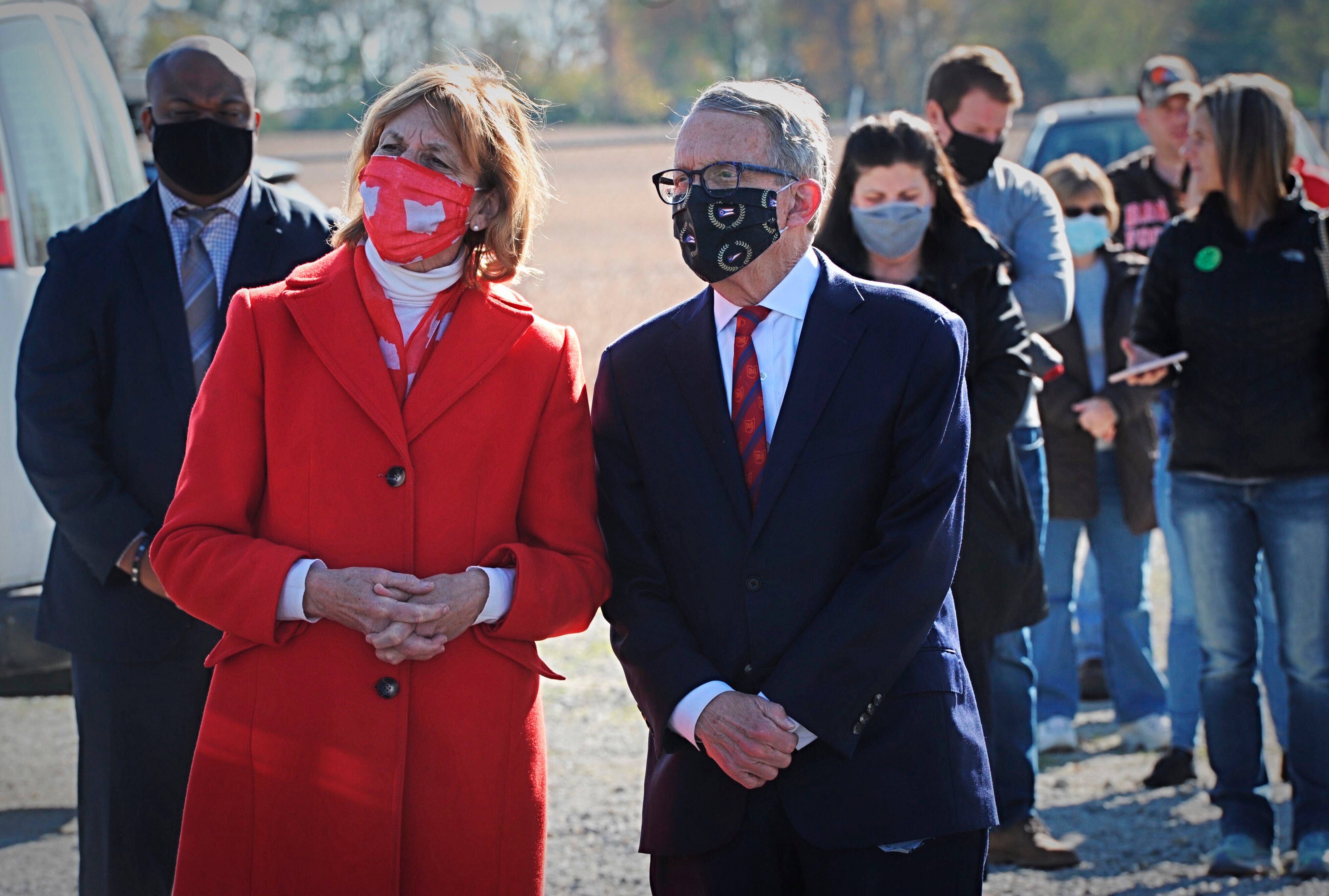Ohio governor: Lethal injection no longer execution option
Republican Gov. Mike DeWine says Ohio lawmakers must choose a different method of capital punishment before any executions can be carried out in the future

Your support helps us to tell the story
From reproductive rights to climate change to Big Tech, The Independent is on the ground when the story is developing. Whether it's investigating the financials of Elon Musk's pro-Trump PAC or producing our latest documentary, 'The A Word', which shines a light on the American women fighting for reproductive rights, we know how important it is to parse out the facts from the messaging.
At such a critical moment in US history, we need reporters on the ground. Your donation allows us to keep sending journalists to speak to both sides of the story.
The Independent is trusted by Americans across the entire political spectrum. And unlike many other quality news outlets, we choose not to lock Americans out of our reporting and analysis with paywalls. We believe quality journalism should be available to everyone, paid for by those who can afford it.
Your support makes all the difference.Lethal injection is no longer an option for Ohio executions, and lawmakers must choose a different method of capital punishment before any inmates can be put to death in the future, Republican Gov. Mike DeWine said Tuesday.
It's “pretty clear” there won't be any executions next year, DeWine told The Associated Press during a year-end interview, adding he doesn't see support in the Legislature for making a switch in execution method a priority. Ohio has an “unofficial moratorium” on capital punishment, he said.
“Lethal injection appears to us to be impossible from a practical point of view today,” the governor said.
DeWine said he still supports capital punishment as Ohio law. But he has come to question its value since the days he helped write the state's current law — enacted in 1981 — because of the long delays between crime and punishment.
DeWine called himself “much more skeptical about whether it meets the criteria that was certainly in my mind when I voted for the death penalty and that was that it in fact did deter crime, which to me is the moral justification.”
Messages were left for leaders in the GOP-controlled House and Senate seeking comment.
Former Republican House Speaker Larry Householder, now under federal indictment for his alleged role in a $60 million bribery scheme, questioned last year whether the state should reconsider capital punishment because of the cost and Ohio’s inability to find lethal drugs.
The state’s last execution was on July 18, 2018, when Ohio put to death Robert Van Hook for killing David Self in Cincinnati in 1985.
Also Tuesday, DeWine said he remains optimistic about his ability to govern Ohio despite attempts by fellow GOP lawmakers to limit his powers and even impeach him over his handling of the pandemic.
“While the few legislators that want to impeach me have gotten headlines, what has not gotten a lot of headlines is the real work,” DeWine said.
The career politician, who has drawn strident criticism from both right and left, is hopeful about 2021 despite the pandemic surging in many parts of the state, calling next year the “year of recovery.”
When asked whether he had any regrets about decisions he made in the past nine months, DeWine said does not have the luxury to reflect when there is so much work left to do.
“There will be time to reflect on that, there will be books written, there will PhDs and dissertations on the whole pandemic and that’s fine but we’re in the battle now,” he said.
___
Farnoush Amiri is a corps member for the Associated Press/Report for America Statehouse News Initiative. Report for America is a nonprofit national service program that places journalists in local newsrooms to report on undercovered issues.
___
This story has been updated to correct that the former House speaker discussed reconsidering capital punishment last year, not this year.